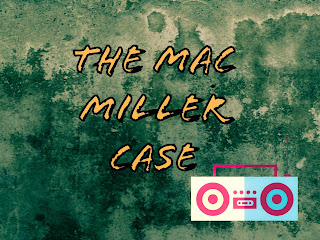Illegal Psychiatric Dispositions, Forced Drugging, and the Mentally Ill
Mental health
professionals are some of the most important professionals in the American legal
system. Specifically, these
professionals, at times, have more authority in our judicial system than
attorneys or judges because of their expertise and ability to provide the courts
and jury with information that the legal processors do not have. Yet in some cases these professionals have
been bought, or sold themselves, to the array of judiciaries within our
country; however, this is not to say that it is entirely their fault or that
they are deliberately performing biased actions within the courts in the United
States of America – we are living in a capitalistic society, I suppose that
this is a reasonable excuse (not really).
Given that fact that we
have an adversarial process, as well as large scale operations of mandated
evaluations, the courts have summoned these professionals for assistance,
however procedural law and financial prosperity has become the “stick in the
mud” that prevents reasonable completions of court processes or adequate medical examinations. Some legal contrivances seek out these
professionals and use their expertise to their advantage; for example, when a
prosecutor or state court has a professional enter a courtroom to testify and
use their expertise to cater to the position or stance that the prosecutor is
attempting to deliver, and the defense attorneys do the same thing with their
hired experts. Another example can be
delivered with the basic understanding of cross examination, which basically
comes down to which side of the courtroom is asking the right questions to have
a verdict sway in their favor. Where is
the random pool of mental health specialists that is needed for neutrality in
our court system?
Labeling and forced
drugging are other dilemmas the courts and mental health professionals have
ascertained in the legal world too.
Particularly, some mental health specialists diagnose a person without
any direct communication, or through a brief interview, with the
person who has brought their professionalism about and, in turn, infer that
medications can be used or must be used.
Deeming someone as mentally ill without proper standards and then forcing
medication on them is ridiculous and extremely intrusive, especially if the
evaluation is briefly done or not done at all.
Mental illnesses certainly exist, and medication can help a person,
however the diagnoses and prescriptions have to meet ethical standards and
should not be used as a method to get a paycheck or to utilize the courts in
order to seem professional. The discourse in the American court system has become a procedure that is based on who can hire the best professionals, which brings a popular song to my mind, a song that states "if you got the money, honey, we got your disease." Terrible. What happened to justice?


Comments
Post a Comment